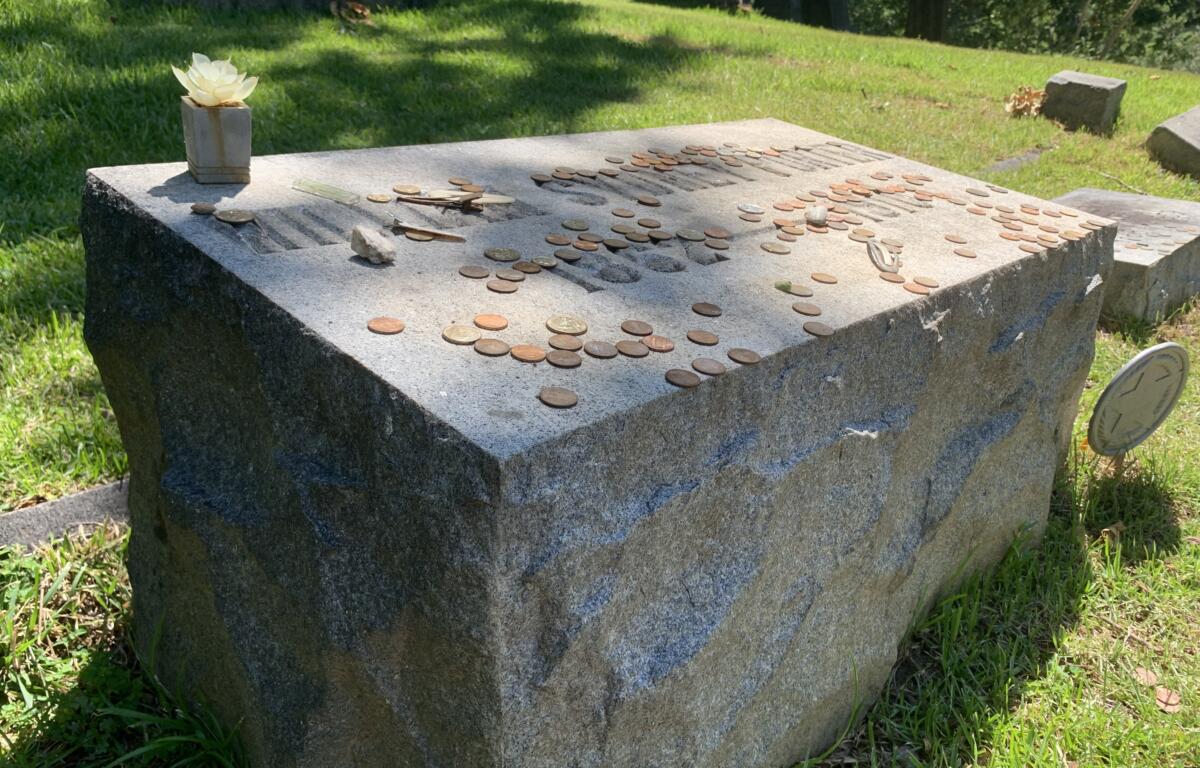ASHEVILLE, N.C. (828newsNOW) —
EDITOR’S NOTE: Everyone has a story — some more well-known than others. Across Western North Carolina, so much history is buried below the surface. Six feet under. With this series, we introduce you to some of the people who have left marks big and small on this special place we call home.
One dollar and 87 cents is how much visitors leave on this author’s grave in Asheville’s historic Riverside Cemetery. William Sydney Porter (1862-1910) was unknown to the public, but his pen name made him a household name across the country. His short stories, riddled with surprises and irony, seemed to reflect the plot twists in his own life — from fleeing to Honduras to befriending a train robber. The author’s wonderous tales are still studied today.
Porter, who signed his stories O. Henry, was born in Greensboro, North Carolina, the son of a physician. He began a career as a pharmacist in his uncle’s drugstore, becoming a licensed pharmacist at age 19. But the drugstore life didn’t scratch his creative itch.
Porter moved to Texas in 1882 searching for health and wealth, hoping to cure a chronic cough and find a new career. After hopping between jobs, he settled down as a banker. Yet, that career did not last either. In 1884, Porter was charged with embezzlement.
Around this time, Porter married Athol Estes. Porter’s new father-in-law posted bail for him, allowing Porter to spend time with his new bride before the trial commenced.

The day before his trial, Porter fled the law. To secure his safety, he shipped off to Honduras where, at the time, there were no extradition treaties with the United States of America.
While in Central America, Porter became acquainted with Al Jennings, an infamous train robber, who later wrote a book about their relationship called “Through the Shadows with O. Henry: The Unlikely Friendship of Al Jennings and William Sydney Porter,” first published in 1921.
In 1897, Porter learned his wife was dying of tuberculosis. The fugitive called it quits and packed his bags for Texas. Upon arrival, Porter turned himself in to the authorities. As before, his father-in-law posted bail, this time to give Porter time to care for his ailing wife before she passed.
Porter was sentenced to five years in a federal prison in 1898. While serving the sentence, he picked up a hobby — writing — which became his final career after his release.
Because of good behavior, Porter was released in 1902, only serving three years and three months of the sentence.
Over the following eight years, Porter lived in New York, where he wrote weekly stories for New York World Sunday Magazine for more than a year and published 11 books containing hundreds of his short stories.
Porter’s most famous work was “The Gift of the Magi,” a story about a poor couple in New York City. In attempting to give each other Christmas gifts, both sacrificed what they loved most for their spouse. The painful irony present in the story’s twist is what displays their love for one another.
Porter’s career was cut short by his addiction. He began drinking heavily by 1908, eventually causing his second wife to leave him. Despite continuing to write, Porter’s health deteriorated rapidly.
On June 5, 1910, the beloved author O. Henry died of cirrhosis of the liver and other conditions in New York City. His body was transported post-mortem to North Carolina, returning him to the state in which he was born.
Visitors at Riverside Cemetery in Asheville, where Porter is buried, leave $1.87 on his grave in commemoration of “The Gift of the Magi.” Della, the wife in the story, was only able to save $1.87 for her husband’s Christmas gift, which sets into motion the events in the classic tale.
O. Henry is remembered through a short story award named in his honor, first awarded in 1919. The O. Henry Award is still given out annually.
MORE TOMBSTONE TALES:


